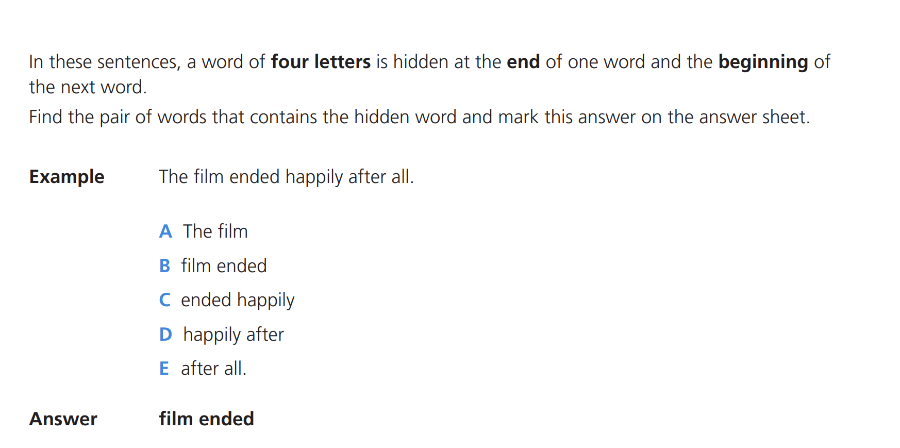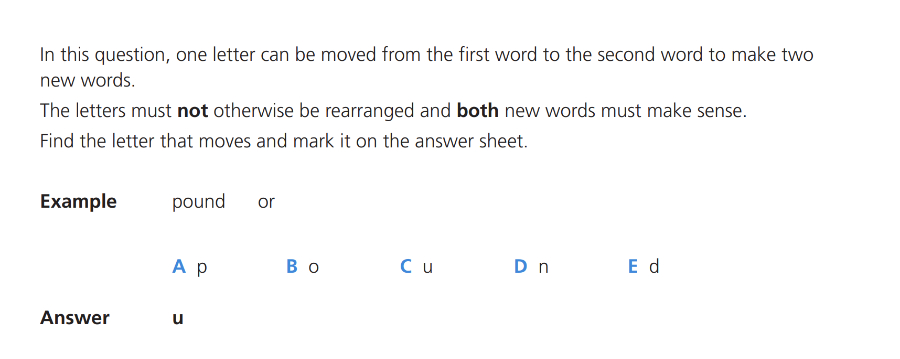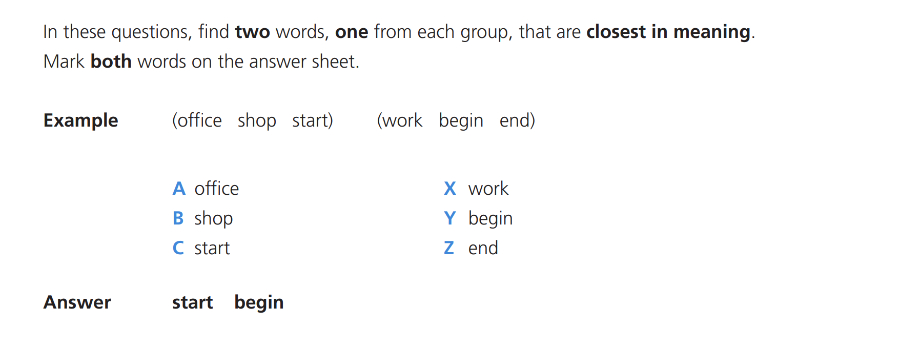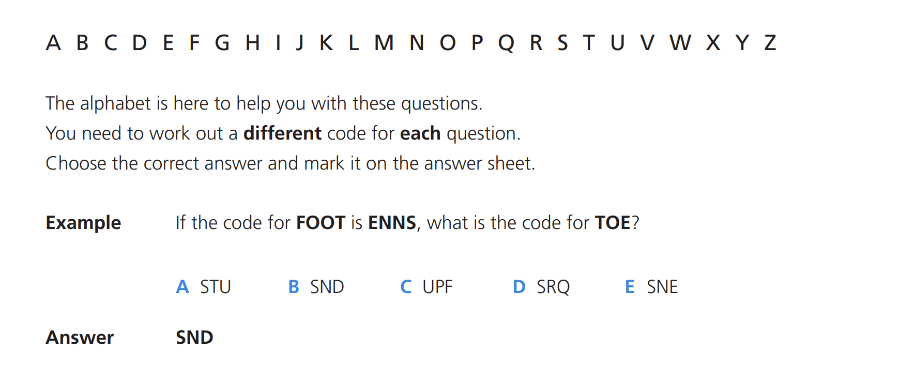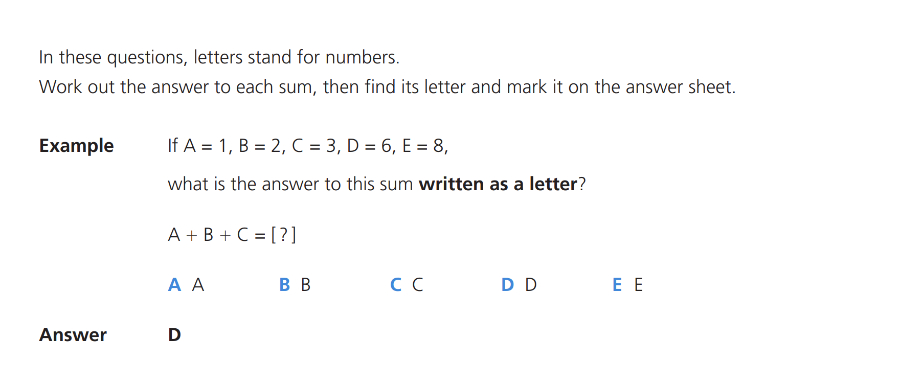Get familiarised with the Verbal Reasoning portion of the GL 11 Plus exam; why it’s important, example questions, and tips to achieve high scores.
The GL 11 Plus exam consists of four sections: English, Mathematics, Verbal Reasoning, and Non-verbal Reasoning.
Although primary schools cover English and Mathematics as part of the Key Stage 2 National Curriculum, Verbal Reasoning and Non-verbal Reasoning are not typically taught in primary schools.
It is true that students may encounter some aspects of these subjects while learning other disciplines such as Mathematics, Science, English, Art, Design Technology, and Computing.
However, children are not explicitly taught Verbal and Non-verbal Reasoning in their early academic years, these sections of the 11 Plus exam can be quite challenging for most students.
In this article, we will explore what Verbal Reasoning is, what to expect during the 11 Plus exam, and how to practise it.
Please note that we will be discussing the 11 Plus exam as provided by GL Assessment as this is the one to be used by West Midlands Grammar Schools for 2024 admissions and onwards following a recent partnership.
Read more: GL 11 Plus: Single Entrance Exam for West Midlands Grammar Schools
What is Verbal Reasoning?
The Verbal Reasoning section of the 11 Plus exam assesses a student’s ability to understand and manipulate language. It is designed to test their vocabulary, comprehension, and critical thinking skills.
Furthermore, Verbal Reasoning involves using words, language, and other verbal cues to test a child’s:
- Problem-solving abilities
- Vocabulary
- Logic
- Comprehension
- Attention to detail
- Reading capability
- Phonological awareness
- Rule application capabilities
This section of the 11 Plus may be called ‘verbal reasoning,’ but this can be a tiny bit misleading – it is not just about manipulating words and letters.
Verbal Reasoning will also include numbers and symbols, so a well-rounded skill set is essential.
However, the majority of the questions will require an understanding of the meaning of words and the relationship between them. As such, a wide-ranging vocabulary is crucial.
The Verbal Reasoning part of the exam, as provided by GL, will typically include 21 different types of questions and last between 50 minutes and an hour.
The length of questions can vary widely, with some consisting of a few sentences while others may only contain a few words.
Most questions will be accompanied by an example question, and some questions are intentionally designed to take longer than others.
What to Expect During the 11 Plus Verbal Reasoning Test
The Verbal Reasoning section of the 11 Plus exam typically consists of a series of multiple-choice questions that assess a child’s ability to use language in different ways.
Some questions may ask them to complete a sentence, while others may ask them to identify the correct word that fits a given definition.
The test may also include questions that ask children to identify relationships between words or complete analogies.
For example, they may be asked to identify the relationship between two words and then choose a third word that has a similar relationship with a different word.
It is important to note that the Verbal Reasoning section of the 11 Plus exam can vary in difficulty depending on the school and the exam board. Some exams may be more challenging than others, so it is essential to prepare accordingly.
Types of Verbal Reasoning Questions
The questions in the Verbal Reasoning portion of the GL 11 Plus exam are designed to assess a child’s vocabulary, logic, and comprehension among other abilities involving words and language.
Below, we have collected a few examples of the type of Verbal Reasoning questions that can be expected to appear on the GL 11 Plus test.
Please note that all of the examples presented here have been taken from GL Assessments.
Hidden words
These questions require students to identify a four-letter word within a sentence hidden between two words.
The hidden letter to be found in this sentence is the four-letter word mend, which can be found at the end of the word film and the beginning of the following word ended.
Transfer a letter to form words
For these problems, students must form two distinctly new words by removing one letter from the first word and placing it in the second word.
By removing the letter u from the word pound, we’re left with the word pond. On the other hand, when we added the u to the word or, we get the word our. The letters in the original word have not been rearranged in either of these cases and we now have two new words that are both sensible and valid.
Synonyms
From the given options of a group of words, students must choose two words that are most similar in meaning – one from each group.
The words start from group one and begin from group two share similar definitions and can be used interchangeably.
Work out the code
A series of questions involve a code that needs to be deciphered, where letters, numbers, or symbols represent different elements of the code.
By deciphering the code for the word FOOT, which is ENNS, we can determine that the code for F is E, O is N, and T is S. It appears that the code letter for each letter in the word is the letter immediately before it in the alphabet. Using the same code to decipher the word TOE, we can determine that the code for T is S, O is N, and E is D.
Code with number sequences
Similar to the previous example, candidates sitting the exam must solve problems involving codes with number sequences.
The question assigns the following numerical value to the letters: A=1, B=2, C=3, D=6, and E=8. Thus, when we replace A, B, and C with their respective numerical values, the sum equals 6. Hence, the answer is the letter D.
How to Prepare for 11 Plus Verbal Reasoning
Since Verbal Reasoning is not formally taught as part of the Key Stage 2 National Curriculum, most students sitting the 11 Plus exam are completely unfamiliar with it.
While preparing for the 11 Plus exam is in itself a daunting task, preparing for the Verbal Reasoning section can be even more so.
However, with the right approach and practice, students can improve their Verbal Reasoning skills and increase their chances of success.
Here are some tips that can help students prepare for the Verbal Reasoning section of the GL 11 Plus:
Build a strong vocabulary
Having a wide-ranging vocabulary is an essential first step towards getting a good score in the Verbal Reasoning section of the exam.
Developing a strong vocabulary is not a one-off process, nor is it an easy one.
Students must expand their knowledge of words and definitions continuously and proactively revise the words already learnt.
While traditional methods such as reading and word lists can be quite effective, regularly taking part in language-based board games like Scrabble is also a highly effective and engaging way to expand one’s vocabulary.
Perform memory exercises regularly
Having a good memory is very important not only for Verbal Reasoning but for the entirety of the 11 Plus test.
Being able to recall things well can also aid in the development of a strong vocabulary.
There are various exercises and games that children can partake in in order to improve their memory abilities. Most of these can be found online.
Tackle advanced reading levels
Reading is an essential skill to have in order to excel in the Verbal Reasoning portion of the 11 Plus.
Encouraging a child to read challenging books, particularly classic novels, is a sure way to improve their reading skills which are essential for mastering Verbal Reasoning.
These books often contain unfamiliar vocabulary, which can enhance their language proficiency.
Reading regularly also helps increase word recognition speed, leading to better time management during the 11 Plus Verbal Reasoning paper.
Complete mock tests
Solving mock tests is one of the most effective ways to prepare for the 11 Plus, including the Verbal Reasoning part of the exam.
Mock tests can aid children in learning how to accurately and efficiently answer Verbal Reasoning questions.
Practice tests enable children to become familiar with the various question types and helped them develop the confidence and skills required to achieve top scores.
Start preparing early
All of the abovementioned tips require time, patience, and continuous practice. Therefore, we recommend that potential grammar school applicants begin preparing for the 11 Plus well ahead of time.
Since Verbal Reasoning is not formally taught in school, it is crucial to become familiarised with the topic and question types early enough so that there is ample time to revise before the exam date.
How Tuition Tree can help
Getting ready for the 11 Plus exam can be a daunting experience for students as well as their families.
Nonetheless, achieving success requires hard work, dedication, and a commitment to learning. With proper guidance and support, students can excel in the exam and get into the grammar school of their preference.
Tuition Tree specialises in tutoring children for the GL 11 Plus exam and has an excellent track record with 84% of students gaining entry into grammar schools.
We offer personalised study sessions, including individual and group options, to ensure every child receives the attention they need to reach their potential.
If you are interested in our services or have any questions, please reach out to us by phone at 0121 270 2889 or fill out our call-back form. You can also email us at info@tuitiontree.co.uk. We are always happy to help and address any concerns.
Keep reading:


